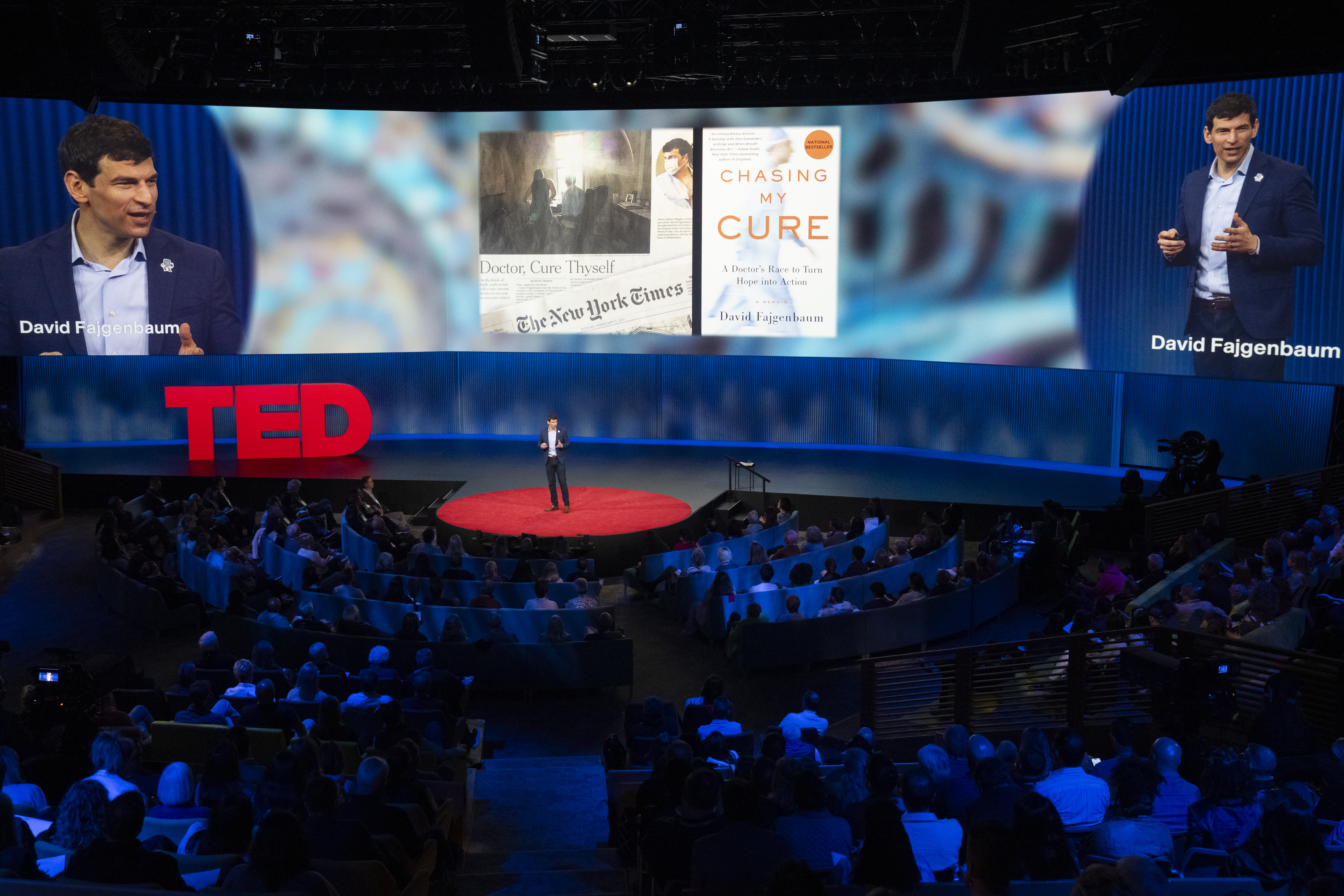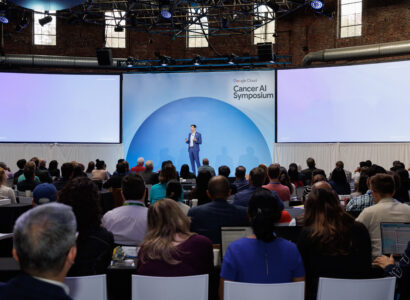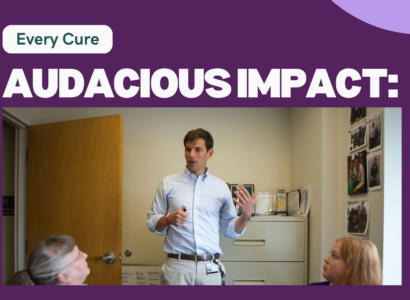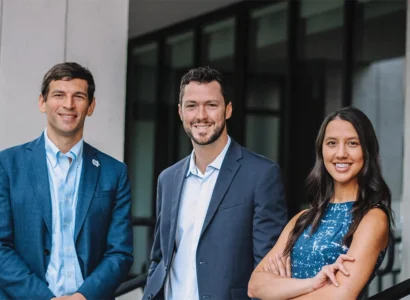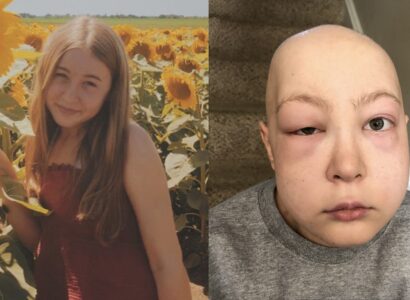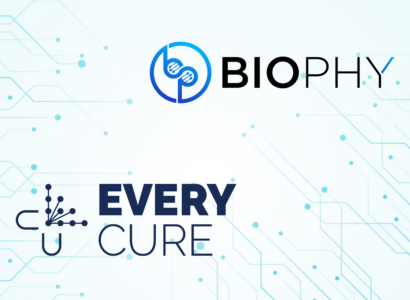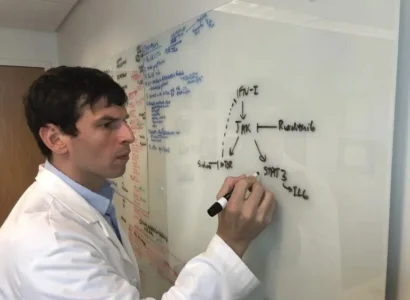Share this
News & Media
The New Yorker Profiled Our Work!
When David Fajgenbaum was a twenty-five-year-old medical student, at the University of Pennsylvania, he started to feel so tired that he could barely stand. Share
Every Cure named Overall Winner of Newsweek’s AI Impact Awards
Every Cure, a nonprofit working to reveal the untapped potential of existing medications, has emerged as the overall winner of Newsweek’s inaugural AI Impact Awards. Share this
We’re proud to share that Every Cure Co-Founder and President, Dr. David Fajgenbaum, has been named to the 2025 TIME100 Health list, a prestigious recognition
Every Cure Profiled in the New York Times!
A little over a year ago, Joseph Coates was told there was only one thing left to decide. Share this
Every Cure Featured on CBS Evening News
Click the video above to watch a story that ran on CBS Evening News about leucovorin for ASD. Share this
Every Cure Publishes Paper in Lancet Hematology Pioneering a New Field of Medicine of Computational Pharmacophenomics
Every year, millions of patients suffer from diseases that lack effective treatments… Share this
Every Cure Featured in the New England Journal of Medicine!
Set to enter hospice care, a patient with idiopathic multicentric Castleman’s disease is now in remission after treatment with a medication predicated as the top
Folinic acid may help with improving verbal communication in certain individuals who have a cerebral vitamin deficiency
Every Cure is excited to highlight the potential role that folinic acid (leucovorin) may play in improving verbal communication in some individuals with speech challenges
Every Cure Expands Collaboration with Google Cloud to Transform AI-Driven Drug Repurposing
Every Cure will leverage Google Cloud’s infrastructure and AI technologies, including Gemini 2.0, to accelerate discoveries and improve patient outcomes Share this
Every Cure Receives Five-Year, $60 Million Commitment Through TED’s Audacious Project to Repurpose Medications for Global Impact
This support will enable Every Cure to evaluate the most promising treatments identified by its ARPA-H-funded AI platform in laboratory and clinical studies, with the
Every Cure Announces Janet Woodcock, Former Acting Commissioner of the FDA has joined its Board of Directors
An organization scouring thousands of existing drugs to see if any can cure hard-to-treat diseases has a powerful new ally: former FDA official Janet Woodcock.
Every Cure Announces Dr. Ruxandra Draghia-Akli as the Chair of the Scientific Advisory Board
Share this
Innovating Hope – Grant Mitchell
Grant Mitchell discusses Every Cure’s mission, challenges in health tech entrepreneurship, impact assessment, future innovations, and advice for aspiring entrepreneurs. Share this
Philly’s AI Revolution: 16 Fascinating Ways Philadelphia Is Using Artificial Intelligence
Rare diseases often require innovative treatments, but not always brand-new ones. This research nonprofit deploys AI as a matchmaker between doctors and existing medications. Share
Hidden Cure: The Unseen Battle for Kaila’s Life
We are excited to bring you our newest patient documentary about Kaila, a rare disease patient whose life was saved thanks to a repurposed drug
How two Philadelphia organizations plan to work together to enhance drug discovery and repurposing
The alliance will focus specifically on enhancing clinical trials and their outcomes to boost trial success rates and the efficient use of capital by drug
Every Cure Deploys BioPhy’s Artificial Intelligence Platform to Accelerate its Mission of Repurposing Drugs for Untreated Diseases
New Technologies Will Enable Every Cure to Bolster its Computational Drug Development, Drug Repurposing, and Clinical Trial Simulation Efforts – Uncovering More Approved Drugs to
ABC News’ Rebecca Jarvis looks at artificial intelligence’s role in the medical field and how it’s allowing doctors to expand their research and make decisions
What’s Lost In AI Translation? Can AI Help Cure Rare Diseases?
We talk with a doctor who discovered a cure for rare diseases with the help of artificial intelligence. Share this

